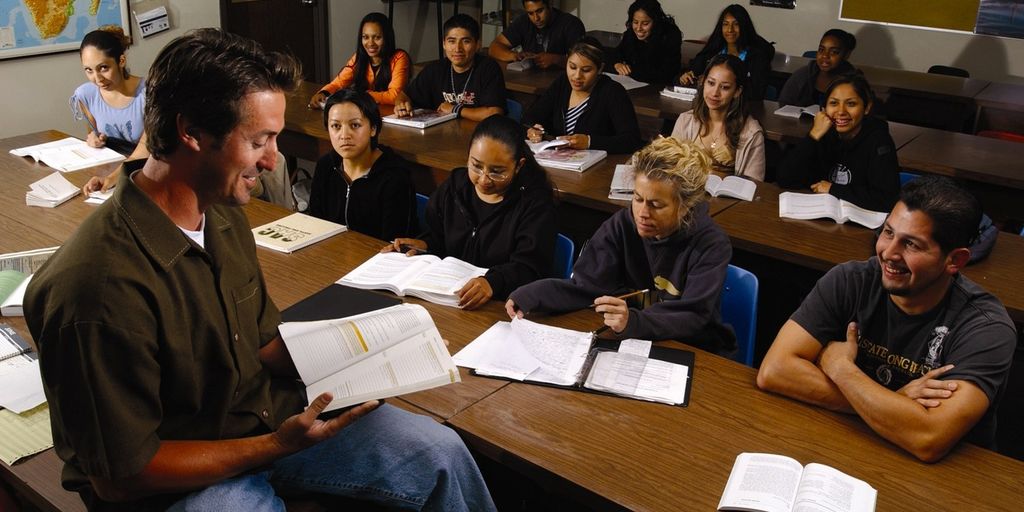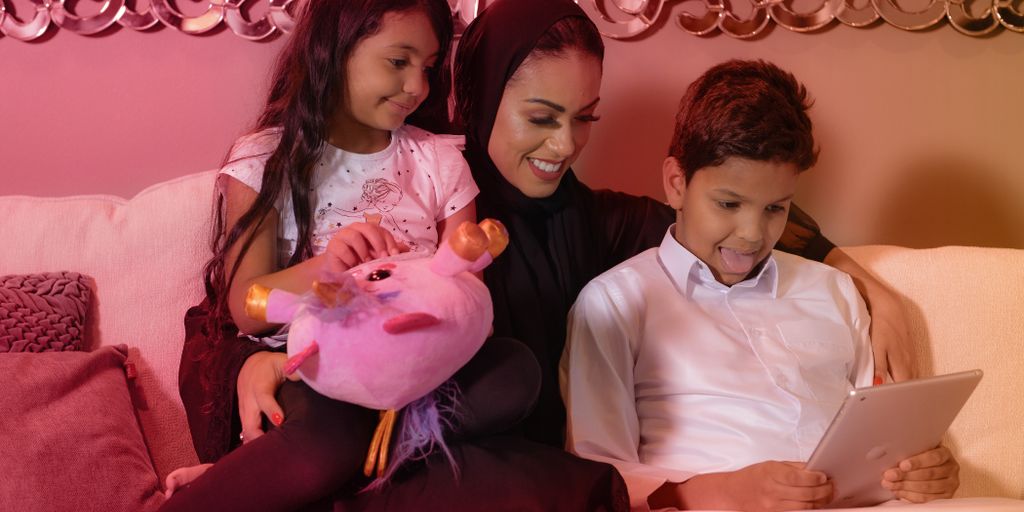
Engaging children in educational activities is crucial for their cognitive and creative development. With this in mind, we’ve curated a list of the best hands-on activities that promise not just fun but also a rich, educational experience for your kids. Dive in and discover the magic of hands-on learning!
Key Takeaways
- Hands-on activities enhance cognitive and creative skills in children.
- Outdoor exploration fosters a connection with nature and encourages physical activity.
- Science experiments make learning fun and help children understand complex concepts.
- Interactive reading and storytelling boost language skills and imagination.
- Cooking and baking together teach practical life skills and healthy eating habits.
Creative Arts and Crafts
Painting and Drawing
Painting and drawing are fundamental activities that allow children to express their creativity and emotions. Providing a variety of materials such as watercolors, crayons, and markers can help keep the activity engaging. Encourage kids to draw scenes from their favorite stories or create abstract art to explore different styles.
DIY Craft Projects
DIY craft projects are perfect for parents and teachers of kids of all ages. These projects can range from simple paper crafts to more complex creations like homemade kaleidoscopes. Materials needed often include items like cardboard, glue, and natural elements. For example, a nature-inspired collage can be made by collecting leaves, twigs, and flowers during a nature walk and arranging them on a cardboard.
Recycled Art
Recycled art projects teach children the importance of sustainability while allowing them to create something beautiful. Use everyday items like plastic bottles, old magazines, and cardboard tubes to make unique art pieces. This not only fosters creativity but also instills a sense of environmental responsibility in young minds.
Engaging in arts and crafts can significantly enhance a child’s developmental milestones and foster positive parenting practices.
Outdoor Exploration Activities

Nature Scavenger Hunts
Nature scavenger hunts are a fantastic way to get children excited about the outdoors. Create a list of items for them to find, such as different types of leaves, rocks, or insects. This activity not only encourages kids to explore their surroundings but also helps them learn about nature in a fun and engaging way. Experiential learning is at the heart of this activity, as children learn by doing and reflecting on their discoveries.
Gardening Projects
Gardening projects can be both educational and therapeutic for children. Start with simple tasks like planting seeds or watering plants. Over time, they can take on more complex responsibilities, such as weeding and harvesting. This hands-on activity teaches kids about the life cycle of plants and the importance of caring for the environment. Provide outdoor and indoor play opportunities to make the most of this activity.
Bird Watching
Bird watching is a peaceful and educational activity that can be done in your backyard or at a local park. Equip your child with a pair of binoculars and a bird guidebook. Encourage them to observe different bird species and note their characteristics. This activity not only enhances their observational skills but also fosters a love for wildlife.
These outdoor science experiments and activities are perfect for taking advantage of sunny days. Fly kites, dissect flowers, experiment with sound and water, and more!
Science Experiments for Kids
Science experiments are a fantastic way to get children excited about learning. They provide hands-on experiences that make complex concepts more understandable and fun. Here are some engaging science experiments for kids that you can try at home or in the classroom.
Simple Chemistry Experiments
Chemistry can be a magical subject for kids when presented through fun experiments. One of the easiest science experiments for kids is the floating egg experiment. This activity offers a hands-on experience with density and buoyancy, teaching them why certain objects float in water while others sink.
Materials Needed:
- Raw egg
- Glass of water
- Salt
How to Do It:
- Place the egg in a glass of plain water and observe (it should sink).
- Add salt to the water, stirring until dissolved.
- Place the egg back in the saltwater solution and watch it float!
Physics Fun
Physics experiments can be both educational and entertaining. Kids can learn about the laws of motion, gravity, and other fundamental principles through interactive activities. For instance, creating simple musical instruments can teach kids about sound waves and vibrations.
Materials Needed:
- Empty containers or boxes
- Rubber bands of various sizes
- Rice, beans, or bells
How to Do It:
- For a guitar, stretch rubber bands over an empty box.
- For a shaker, fill a container with rice, beans, or bells.
- Play and experiment with different sounds!
Biology Basics
Biology experiments allow kids to explore the natural world. One of the most fun hands-on learning activities is observing plant growth. Kids can learn about botany and the life cycle of plants.
Materials Needed:
- A clear plastic cup
- Soil
- Seeds (e.g., beans or sunflowers)
- Water
How to Do It:
- Fill the cup with soil and plant the seeds.
- Water regularly and place in a sunny spot.
- Observe and document the growth over days and weeks.
Science experiments are not just educational; they are also a great way to spend quality time with your children. They encourage curiosity and foster a love for learning that can last a lifetime.
Interactive Reading and Storytelling
Storytime Sessions
Storytime sessions are a wonderful way to engage children in the world of books. Reading together not only helps in developing language skills but also strengthens the bond between the reader and the listener. Sometimes, try reading books to your child that are above their reading age so they can listen and enjoy your reading and expression. Why not choose a book from our free eBook library to share on-screen together?
Puppet Shows
Puppet shows are a fantastic way to bring stories to life. They encourage children to use their imagination and creativity. You can create simple puppets at home using socks, paper bags, or even recycled materials. This activity not only entertains but also helps in developing fine motor skills and storytelling abilities.
Creative Writing
Encourage your child to write their own stories. This can be a fun and educational activity that enhances their writing skills and stimulates their imagination. You can start with simple prompts or let them write about their favorite characters and adventures. This activity is perfect for comprehension and critical thinking development.
Interactive books and storytelling are powerful tools to enhance language skills and creativity. They help expand vocabulary, improve listening skills, and stimulate a child’s imagination.
Mathematical Fun and Games
Math Puzzles
Math puzzles are a fantastic way to engage children in critical thinking and problem-solving. These puzzles can range from simple addition and subtraction to more complex logic problems. Incorporating math puzzles into daily activities can make learning fun and interactive.
Board Games with Numbers
Board games that incorporate numbers are perfect for creating an engaging atmosphere. Games like Monopoly, Number Bingo, and Math Jeopardy help reinforce lesson content and build skills. Here are some ideas:
- Monopoly: Teaches money management and basic arithmetic.
- Number Bingo: Enhances number recognition and quick thinking.
- Math Jeopardy: Encourages strategic thinking and problem-solving.
Everyday Math Challenges
Everyday math challenges are a great way to make math facts practice intriguing. These activities can be seamlessly integrated into daily routines, making learning continuous and natural. For example:
- Grocery Shopping: Calculate the total cost of items.
- Cooking: Measure ingredients and convert units.
- Travel: Estimate travel time and distance.
Math facts practice is important but not very much fun. Or is it? These math facts games and activities are sure to intrigue your students!
Music and Movement Activities
Dance Parties
Dance parties are a fantastic way to get children moving while having fun. These activities help develop gross motor skills, enhance listening and memory abilities, and foster a sense of rhythm. You can create a playlist of their favorite songs and encourage them to dance freely. For added fun, introduce simple dance routines or follow-along videos.
Dance parties are not only enjoyable but also a great way to bond with your child while promoting physical activity.
Musical Instrument Exploration
Exploring musical instruments can be an exciting adventure for kids. Provide a variety of instruments like drums, tambourines, and xylophones. Encourage children to experiment with different sounds and rhythms. This activity helps in developing their sense of rhythm and listening skills. It’s also a wonderful way to introduce them to the basics of music.
Rhythm and Beat Games
Rhythm and beat games are excellent for teaching children about timing and coordination. You can use clapping games, rhythm sticks, or even household items like pots and pans to create beats. These games are not only fun but also educational, helping children understand the importance of timing in music. Additionally, they can improve their memory and listening abilities.
Cooking and Baking Together
Simple Recipes for Kids
Cooking with your child is an excellent way to practice and talk about key math skills – counting eggs for a cake recipe, measuring and weighing ingredients together. Best of all, you both get to enjoy a tasty treat at the end! Why not try our banana bread recipe?
Baking Science
Baking is not just about making delicious treats; it’s also a fun way to introduce kids to basic science concepts. For example, you can explain how yeast makes dough rise or how different ingredients react with each other. This hands-on approach makes learning science fun and engaging.
Healthy Snack Creations
Creating healthy snacks together can be both fun and educational. Teach your kids about the importance of nutrition while making tasty treats like fruit kebabs or veggie sticks with hummus. This not only encourages healthy eating habits but also allows for some creative culinary fun.
Cooking and baking with kids can be a delightful way to bond and teach them valuable life skills. From simple recipes to understanding the science behind baking, these activities offer endless opportunities for learning and fun.
Here’re some interesting cooking activities for preschoolers to develop their fine motor skills. Teach them how to cook in a fun and interesting way!
Cultural and Historical Activities
Exploring Different Cultures
Engaging children in activities that explore different cultures can be both fun and educational. Cultural tools in children’s learning can include traditional music, dance, and food from various parts of the world. This not only broadens their horizons but also fosters a sense of appreciation and respect for diversity. Consider organizing a cultural day where children can dress in traditional attire, share stories, and even try their hand at cooking a simple dish from another culture.
Historical Reenactments
Historical reenactments are a fantastic way to bring history to life for children. By participating in these activities, children can gain a deeper understanding of historical events and figures. Encourage them to explore like an explorer by dressing up and acting out scenes from history. This can be done through simple role-playing games or more elaborate productions involving costumes and props.
Museum Visits
Visiting museums offers children a tangible connection to the past. Many museums provide interactive exhibits and free resources for studying ancient civilizations. Hands-on projects, art, cooking, and storytelling can make these visits even more engaging. Encourage children to take notes, ask questions, and participate in any available workshops or activities. This not only enhances their learning experience but also makes history feel more accessible and exciting.
Conclusion
Engaging in hands-on activities is a fantastic way for kids to learn, explore, and grow. These activities not only make learning fun but also help children grasp complex concepts more easily. By trying out these activities, parents and educators can provide children with memorable experiences that foster curiosity and a love for learning. So, dive in, get those hands busy, and watch the magic of hands-on learning unfold!
Frequently Asked Questions
How often should I introduce these activities to my child?
Regular engagement is key. Introducing a new activity once a week can keep learning fresh and exciting, but even once a month can be impactful.
Can these activities be adapted for different age groups?
Yes, most activities can be modified to suit different age groups. Adjust the complexity and materials used to match the child’s developmental stage.
What materials will I need for these activities?
Materials vary depending on the activity. Common items include art supplies, household items, and natural materials. Each activity description usually includes a list of required materials.
How do I keep my child engaged during these activities?
Make the activities fun and interactive. Allow your child to take the lead and make choices. Praise their efforts and celebrate their achievements to keep them motivated.
Are these activities safe for kids?
Yes, these activities are designed to be safe for children. However, adult supervision is recommended, especially for activities involving small parts, tools, or outdoor exploration.
Can I do these activities indoors?
Many of these activities can be done indoors. However, some, like gardening projects and nature scavenger hunts, are best suited for outdoor settings.






